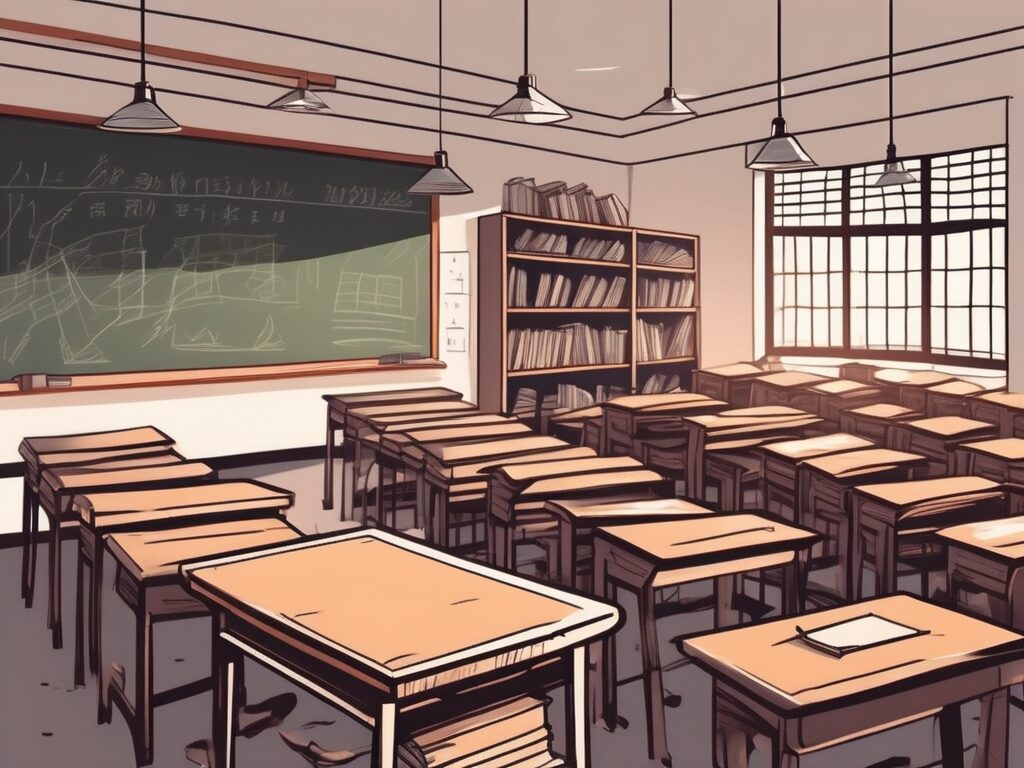China’s education system, renowned for its rigour and high standards, has been the subject of global admiration. However, like every system, it is not without its challenges. This piece aims to shed light on the current issues plaguing China’s education system, from the urban-rural divide to the high-pressure examination culture, and the quest for educational reform.
The Urban-Rural Education Divide
One of the most pressing issues in China’s education system is the stark disparity between urban and rural education. This is akin to the difference between night and day, with urban schools boasting modern facilities and high-quality teaching, while rural schools often lack basic amenities and qualified teachers.
Urban schools are often well-equipped with state-of-the-art facilities, experienced teachers, and a plethora of extracurricular activities. In contrast, rural schools are often under-resourced, with fewer teachers who are less qualified. This creates a significant gap in the quality of education received by students in these two settings.
Furthermore, the rural-urban divide extends beyond the physical and into the curriculum. Urban schools often offer a wider range of subjects and more opportunities for students to explore their interests. Rural schools, on the other hand, may only provide basic education, limiting students’ potential for growth and development.
The High-Pressure Examination Culture
Another significant challenge in China’s education system is the high-pressure examination culture. The Gaokao, China’s national university entrance exam, is a prime example of this. It’s a bit like the A-levels in the UK, but with the pressure turned up to eleven.
Students spend years preparing for this single examination, often at the expense of their physical and mental health. The immense pressure to perform well can lead to stress, anxiety, and other mental health issues. It’s a bit like preparing for a marathon, but instead of physical endurance, it’s mental endurance that’s being tested.
Furthermore, the high-stakes nature of these exams can limit students’ opportunities for holistic development. The focus on rote learning and memorisation often leaves little room for creativity, critical thinking, and other essential skills. It’s a bit like training for a sprint, but neglecting to develop the endurance needed for a long-distance run.
The Quest for Educational Reform
The Chinese government recognises these challenges and has embarked on a quest for educational reform. However, implementing change in such a vast and diverse country is no easy task. It’s a bit like trying to turn a supertanker – it takes time and careful manoeuvring.
One of the key areas of reform is the curriculum. The government is seeking to move away from rote learning and towards a more holistic approach to education. This includes promoting critical thinking, creativity, and problem-solving skills. However, changing ingrained teaching methods and examination systems is a complex and lengthy process.
Another area of reform is addressing the urban-rural education divide. The government has launched initiatives to improve rural education, such as building new schools and training teachers. However, bridging the gap between urban and rural education is a long-term endeavour that requires sustained effort and investment.
Conclusion
China’s education system, while admired for its rigour and high standards, faces significant challenges. The urban-rural education divide and the high-pressure examination culture are key issues that need to be addressed. However, the quest for educational reform is underway, and with time and effort, these challenges can be overcome.
Just as a journey of a thousand miles begins with a single step, so too does the journey towards educational reform. It may be a long and arduous process, but with determination and perseverance, China’s education system can continue to evolve and improve.
As we’ve seen, the challenges facing China’s education system are complex and multifaceted. However, they also present opportunities for growth and improvement. By addressing these issues, China has the potential to create an education system that not only upholds high standards but also fosters holistic development and equal opportunities for all students.
Empower Your Teaching Career with IPGCE
As China seeks to navigate the complexities of educational reform, educators are at the forefront of this transformative journey. If you’re an educator looking to enhance your qualifications, overcome barriers to career progression, and connect with a global professional community, IPGCE is your gateway to success. Our International Postgraduate Certificate in Education is tailored to provide you with the skills and credentials needed to thrive in international schools and beyond. With IPGCE, you’ll experience a significant boost in interview callbacks, promotion rates, and salary potential. Join the UK’s #1 Teacher Training Course and take the first step towards a more connected, adaptable, and rewarding teaching career. Join the UK’s #1 Teacher Training Course today and be part of the solution to the challenges in global education systems.

